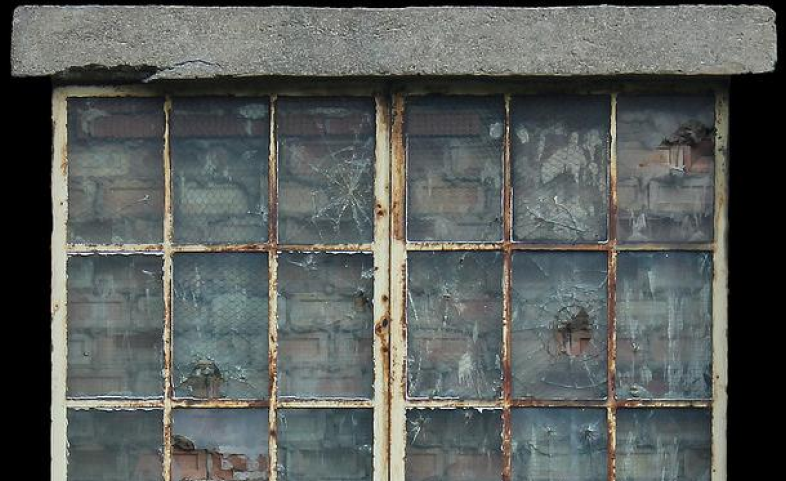In researching his book There Are No Children Here: The Story of Two Boys Growing Up in the Other America, journalist Alex Kotlowitz met with his two young subjects each week for pizza. He wanted to know about Lafeyette and Pharoah’s world in one of Chicago’s poorest neighborhoods. In the beginning, he would ask about gangs, violence, shooting and drugs. All Lafeyette and Pharoah wanted to talk about was the spelling bee at school.
Kotlowitz’s groundbreaking book was the result of three years of extensive reporting with the children and their family at the Henry Horner housing project. The 1992 book explores poverty’s devastating effect on children and is a testament to how in-depth reporting can drive powerful works of journalism.
At the Education Writers Association’s recent conference in Chicago, “In the neighborhood: Covering Poverty’s Influence on Education”, Kotlowitz shared advice on managing long-form projects on challenging subjects.
Kotlowitz said he learned a valuable lesson in how to report authentically and meaningfully in those early interviews with Pharoah and Lafeyette, For journalists attempting similarly ambitious works of journalism, he cautioned against the initial news instincts to look for what is shocking and surprising.
“When you go into a community, the things that you are drawn into will be the unfamiliar,” he said. “Be drawn to the familiar as well.”
Access and building trust
One of the most rewarding aspects of journalism is that there will always be people willing to tell their story. Still, Kotlowitz said, when journalists approach sources, they will often be asked: “What’s in it for me?” People may ask if they will be paid for telling their story. Writers should be prepared for sources to raise remuneration.
“You need to ask: ‘Why the hell would I speak to the reporter?’ It’s a difficult question,” said Kotlowitz. It can be even more difficult when a reporter is unknown in a community, unknown as a journalist, or both. Without the trust of sources, it is almost impossible to work on a long-form project. Kotlowitz’s advice is to be open and honest from the beginning: Be genuine, be who you are. “Maintain your own sense of self,” he said, cautioning against taking on “mannerisms” that are not your own.
But trust, accountability and privacy must be balanced. In 2014, Kotlowitz worked on a documentary for the radio program, This American Life. The piece, Harper High, required five months of in-depth reporting in a Chicago high school where 29 former and current students had been shot in one year. (Along with Kotlowitz, WBEZ Chicago journalist Linda Lutton led the reporting team for the project, which won EWA’s Grand Prize for Education Reporting in 2014.) He had the interviews and access needed for the story. But Kotlowitz made the decision not to use the last names of his sources, to protect their privacy.
Transparency is paramount, both with the reader and with the sources. (One example: Disclosing when you’ve assigned pseudonyms or withheld a surname.) The people in a journalist’s story should never be surprised by what they read, Kotlowitz said. When dealing with a private individual, he said it’s important to make them aware of the direction of a story, where it is going and how they will appear. When it comes to officials, Kotlowitz said, it’s a different story. “You are there to bear witness,” he said. “Your job is to hold their feet to the fire.”
In terms of transparency with the reader, Kotlowitz advised journalists to make any impact they have on the story clear and obvious. “You need to be honest with readers,” Kotlowitz said, “If you affect the story, you need to write about it.”
Passion and Precision: creating an accurate story
Often, long-term reporting is referred to as a “collaboration” between writer and subjects. Kotlowitz agrees, but believes that “collaboration” is limited.
“Ultimately it’s me who takes that story and really shapes it,” he said, referring specifically to his work on Harper High. “There have been efforts that have really tried to use the voices of people. I think of things like StoryCorp for example.”
He stressed the importance of being really specific, so that a story is honest. “It’s about precision, not the political correctness. For example, if someone is poor, what do you mean by that?” he said, “Be as precise as you can when talking about people. Avoid language like ‘at-risk youth’ and terms like that, that are so loaded. It’s lazy reporting.”
At some point a writer must be able to remove him or herself, to step back and look at the story with disinterest, Kotlowitz said.
“It’s important to be passionate, but in the end, when you sit down to write, you need to be as dispassionate as you can,” he said, “For me there’s nothing more powerful than understated writing and understated storytelling.”
The value of long-term projects
For many working journalists, the idea of a multi-month or multi-year reporting project seems impossible. Newsrooms across the world are shrinking and reporters are being asked to do more with less.
“Newspapers have skeleton staff now,” Kotlowitz acknowledged, “but you’ve just got to carve out that time to spend time with people.”
Juggling short-term goals with larger works is something reporters must do, he said. “Part of the trick is being able to work on one thing at a time,” said Kotlowitz, Just as he managed his job at a newspaper while writing There Are No Children Here, Kotlowitz said reporters must become skilled at handling their beat while chipping away at more ambitious stories.
These projects are time-consuming and hard work. They are even more difficult when deadlines are tight, demands are high and resources are few. But Kotlowitz had these comforting words: “Nothing will trump really intimate reporting, and you can never forget that.”
